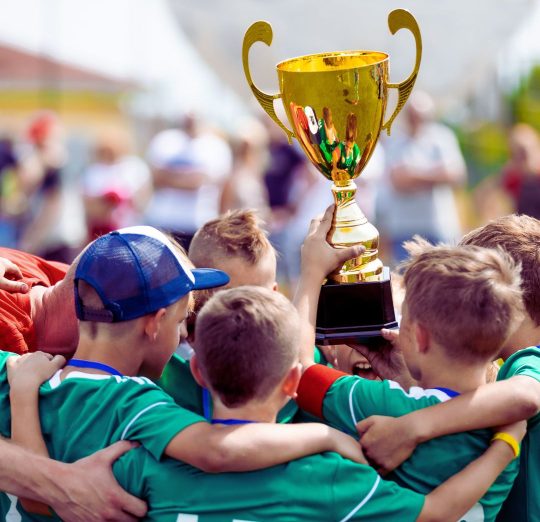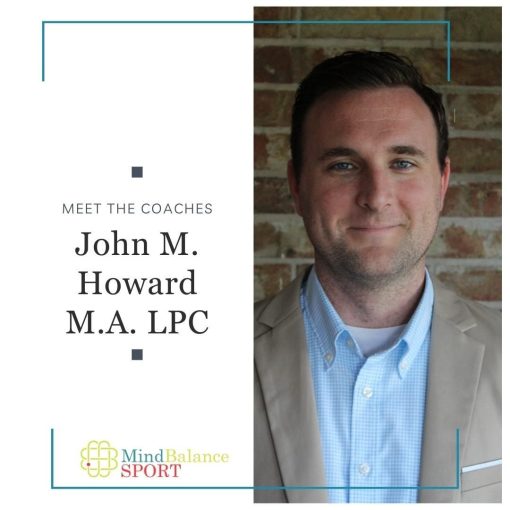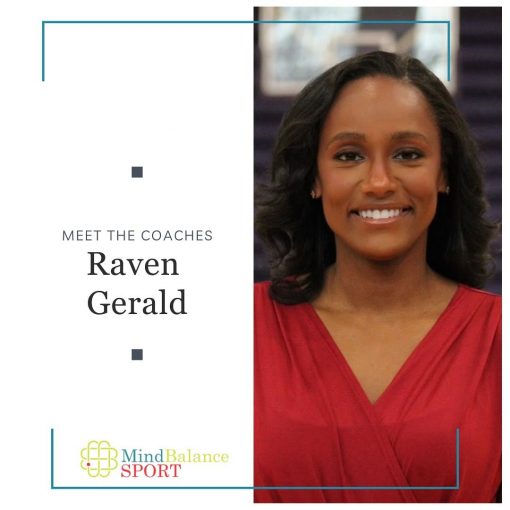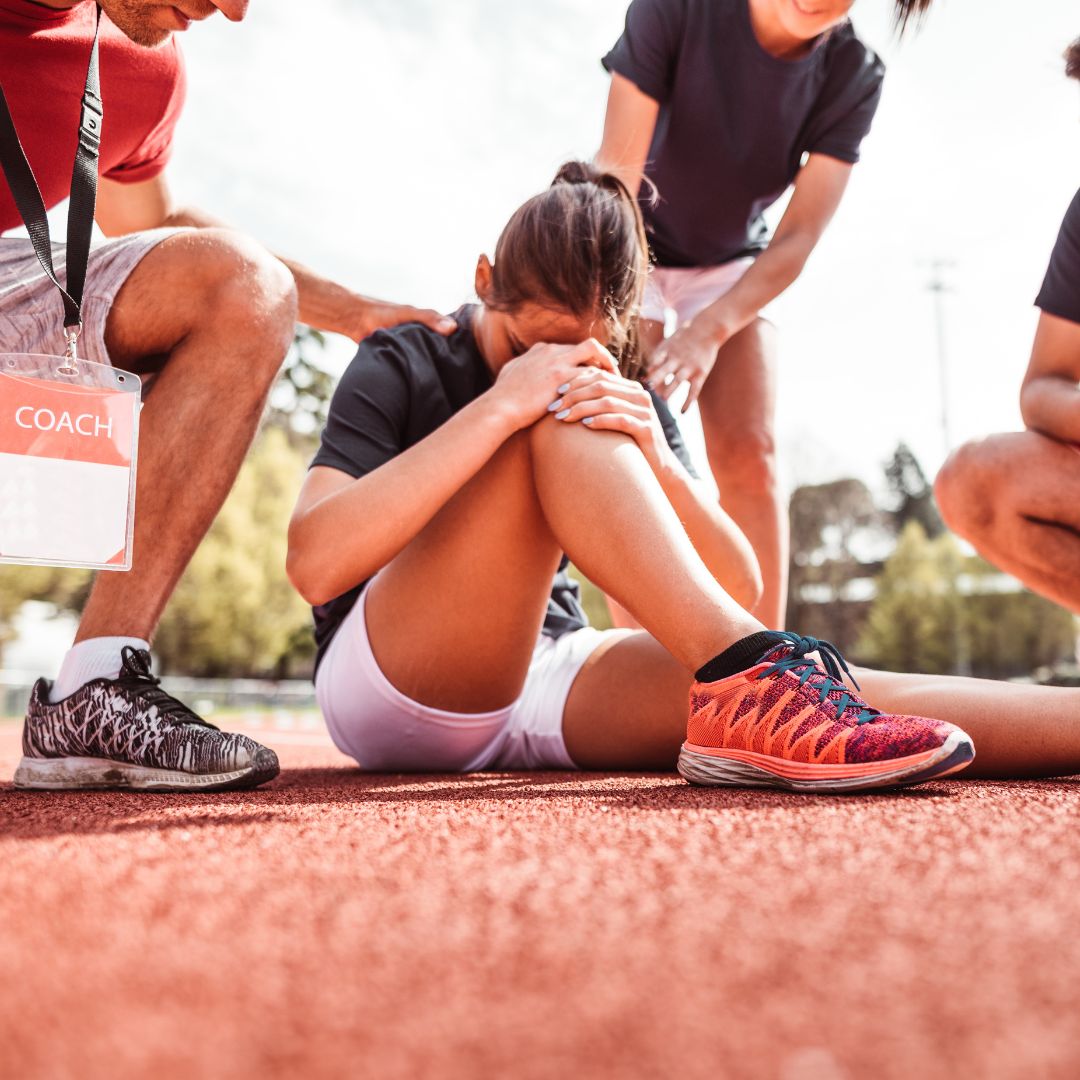Sports Psychologist in Herndon, VA
You want to work on your mental game, but how do you train your brain?
At MindBalanceSPORT, We Train The Other Half Of The Athlete.
You want to work on your mental game, but how do you train your brain?
Mental training does not get much media attention, but at MindBalanceSPORT we know it is a game changer. The mental skills you will learn at MindBalanceSPORT are generalizable in the classroom, in sport and in life!
We know that mental skills can be successfully taught, even at an early age.

Our Services
Meet the Team





testimonials
Athlete Stories: Real Comebacks, Real Results

Emma, a high school basketball player, tore her ACL in the middle of her junior season. After surgery, she struggled with self-doubt and fear every time she stepped back on the court. Through sport psychology training, she learned visualization techniques and confidence-building exercises that helped her regain trust in her knee. When she returned for her senior season, she didn’t just play—she led her team to the playoffs.

Carlos, a soccer player, suffered a stress fracture in his foot and had to miss half of his season. Sitting out was mentally tougher than the pain itself. We worked on mental engagement strategies to keep him sharp—studying game film, setting small rehab goals, and using mental imagery to stay ready. When he was finally cleared, his confidence never wavered.

Jordan, a track athlete, strained her hamstring before a major competition. She feared losing speed and falling behind competitors. Instead of focusing on what she couldn’t do, we redirected her energy toward mental preparation, using self-talk and goal setting to keep her confidence strong. When she returned, she set a new personal record.
EXCELLENTTrustindex verifies that the original source of the review is Google. It was a great help to my 14-year-old competitive volleyball player daughter. Raven was great to understand and connect with her from start to end. We will continue with our sessions as needed.Trustindex verifies that the original source of the review is Google. Great results! I’ve loved working with Paula. Our sessions have greatly improved both the physical and mental aspects of my tennis game. I’m playing better and having more fun! Highly recommend!Trustindex verifies that the original source of the review is Google. Our family had a wonderful experience with Paula Castro. We needed some additional confidence in a particular area/sport and Paula helped get us there. We know who to turn to if we need help again. She’s been a Blessing. Thank you, Paula!Trustindex verifies that the original source of the review is Google. I highly recommend MindBalanceSPORT. Our son works with John Howard. John is very caring, positive, and effective at working with teenagers. John is an adept listener and created an individualized plan tailored to our son’s personality. After just a few sessions with John, we noticed a significant improvement in our son’s motivation and mental approach to sports and life in general. Our son looks forward to meeting with John and tells us that he benefits immensely from their connection.Trustindex verifies that the original source of the review is Google. Paula Castro is an outstanding professional on the field. She has helped my daughter improve her confidence, preparation, and thanks to these session she feels more prepared and motivated. Paula takes the time also to share (what she can) and align with us as parents to be on the same page. Strongly recommended!Trustindex verifies that the original source of the review is Google. MineBalanceSPORT has quickly become the area's expert in sports psychology. Their reputation is well deserved given their incredibly thoughtful, scientifically based approaches to treating performance-related conditions, and I have only heard glowing, positive feedback from those who have engaged in their program. I will also add that Drs. Jones and Chirby presented to us (our group comprises of 15+ doctors and masters level clinicans) about their program and impressed us all with their level of expertise and passion for this field. I give them my highest recommendation.Trustindex verifies that the original source of the review is Google. Dr. Jones was beyond helpful to me throughout our time together. If you are an athlete and you need advice or assistance this is the place to come to. She completely changed my outlook and mindset in a time when I needed her most. I look forward to staying in touch with her and am forever thankful for her expertise.Trustindex verifies that the original source of the review is Google. Paula has been a huge help with my daughter Morgan coming off her injury. It’s been 18 months since she’s played basketball and she’s thriving because I know Paula is guiding her the right direction. As a mother, I’m extremely gratefulTrustindex verifies that the original source of the review is Google. If you are looking for Amazing Psychologists who can help support you in your sports performance, you need to call MindBalanceSPORT! Dr. Chirby and her colleagues are a wealth of knowledge, they have so many helpful techniques for mind balance, and they have so much compassion for the communities that they serve! Highly recommend!!!
Recovery
While Everyone Has A Physical Ceiling, There Is No Mental Ceiling.
How Sports Psychologists in Herndon, VA Enhance Athlete Performance and Mental Resilience
How Sports Psychologists in Herndon, VA Enhance Athlete Performance and Mental Resilience
Self-awareness serves as a cornerstone for athletes aiming to optimize their performance and enhance mental resilience. By understanding their own thoughts, emotions, and behaviors, athletes can identify patterns that either support or hinder their success. This process not only improves performance on the field but also fosters long-term psychological well-being.
What Is Self-Awareness in Sports?
- Understanding how emotions affect decision-making during competition.
- Identifying triggers for stress or anxiety before or during events.
- Recognizing physical limitations or areas for improvement.
- Developing an awareness of personal strengths that can be leveraged for better outcomes.
When athletes become self-aware, they gain the ability to make intentional adjustments to achieve optimal performance levels.
Benefits of Self-Awareness in Athletic Performance
- Athletes can manage stress more effectively by recognizing early signs of anxiety or frustration.
- Emotional regulation helps maintain focus even in high-pressure situations.
- Awareness of emotional biases prevents impulsive decisions during competitions.
- Helps develop clearer strategies by identifying what works versus what doesn’t.
- Knowing one’s strengths builds confidence, contributing to consistent performance.
- Awareness of past achievements reinforces belief in one’s abilities.
- Recognizing personal triggers equips athletes with tools to overcome setbacks.
- Encourages adaptability when facing unexpected challenges.
Tools for Building Self-Awareness
| Tool/Technique | Purpose |
| Journaling | Reflecting on daily performances helps identify patterns. |
| Mindfulness Training | Improves focus on the present moment and reduces distractions. |
| Performance Analytics | Reviewing video footage or statistics highlights strengths/weaknesses. |
| Emotional Awareness Exercises | Assists in identifying emotional triggers during competition. |
Athletes are encouraged to work consistently with these tools under the guidance of coaches or sports psychologists to integrate self-awareness into their routine practices.
Practical Steps Toward Greater Self-Awareness
- What went well?
- What could be improved?
- How did emotions influence performance?
- Seek insights into areas where perception might differ from reality.
- Set specific goals targeting identified weaknesses while reinforcing strengths.
By embracing these strategies consistently over time, athletes can create a feedback loop that fosters both growth and resilience within competitive environments.
Final Thoughts
Self-awareness is not simply a desirable trait; it is an essential skill for unlocking peak potential in athletic contexts. Athletes who practice self-reflection and emotional intelligence are better equipped to adapt under pressure while maintaining focus on their ultimate goals. The journey begins with understanding oneself—a process that lays the groundwork for sustained success both on and off the field.
Exploring Sports Counselling in Herndon, VA Through the Self-Awareness Model in Sports Psychology
Self-awareness is a cornerstone of sports psychology, deeply influencing an athlete’s performance, mental resilience, and overall growth. By understanding and applying the self-awareness model, athletes can better navigate their emotional and psychological states while optimizing their physical potential. Here’s an in-depth look at how the self-awareness model functions within sports psychology.
Exploring Performance Psychology in Herndon, VA Through the Self-Awareness Model
- Identifying triggers for stress or anxiety during training or competition.
- Recognizing strengths and weaknesses in performance.
- Understanding how mental states impact physical execution.
- Adjusting behaviors to align with personal goals or team objectives.
This model allows athletes to move beyond reactive thinking and approach challenges with deliberate control.
Maximizing Self-Awareness Through Sport Performance Training in Herndon, VA
- Recognizing internal factors such as emotional states (e.g., frustration before a game) or physical sensations (e.g., muscle fatigue).
- Tracking patterns of thought that contribute to confidence or self-doubt.
- Being mindful of external variables like competition dynamics or crowd influence.
- Observing the impact of communication with teammates or opponents on performance.
- Adjusting actions based on real-time feedback from both internal and external awareness.
- Implementing strategies to counteract negative emotions or distractions.
How a Sports Mental Coach in Herndon, VA Can Help Athletes Enhance Self-Awareness
- Improved Focus: Athletes can remain present in critical moments rather than being weighed down by past mistakes or future uncertainties.
- Emotional Regulation: A deeper understanding of emotions helps prevent overreactions during high-pressure situations.
- Personalized Training: Awareness highlights areas requiring improvement while recognizing what works effectively for each athlete.
- Stronger Mental Resilience: Athletes can bounce back more effectively from setbacks when they understand their psychological responses.
Effective Approaches to Sports Psychiatry in Herndon, VA for Building Self-Awareness
Journaling
Recording thoughts after practice sessions or competitions helps identify recurring mental patterns affecting performance positively or negatively.
Mindfulness Exercises
Techniques such as deep breathing, meditation, and visualization promote a clear headspace for better decision-making under pressure.
Video Analysis
Watching recordings of performances highlights subtleties in body language and technique that may go unnoticed during live events.
Feedback from Coaches/Peers
Constructive feedback offers external perspectives that complement the athlete’s internal observations for a well-rounded assessment of strengths and limitations.
| Technique | Key Benefit |
| Journaling | Tracks progress & identifies patterns |
| Mindfulness | Improves focus & reduces anxiety |
| Video Analysis | Highlights technical adjustments |
| Feedback | Adds external perspective |
Developing self-awareness is not just about improving athletic outcomes but also about fostering personal growth. This foundational skill equips athletes with tools to face challenges head-on while maximizing their potential both on and off the field.
Finding the Best Sports Psychologist Near Me for a Strong Mental Foundation
In sports psychology, the foundational level of mental performance is critical for athletes aiming to achieve both consistent results and long-term success. This base level focuses on essential psychological skills that enhance an athlete’s ability to manage stress, maintain focus, and build confidence. Without a strong foundation, progress toward peak performance may be hindered by mental or emotional instability.
Key Components of the Base Level
- Developing techniques to handle pressure during competition.
- Learning to stay composed after mistakes or unexpected challenges.
- Utilizing tools such as deep breathing or mindfulness exercises.
- Establishing realistic short-term and long-term objectives.
- Using SMART goals (Specific, Measurable, Achievable, Relevant, Time-bound) to structure training plans.
- Tracking progress to maintain motivation and adjust strategies when needed.
- Building faith in one’s abilities through positive reinforcement.
- Practicing visualization techniques to rehearse success mentally.
- Focusing on past achievements as reminders of capability.
- Learning strategies to block out distractions during practice or competition.
- Maintaining concentration even under high-stakes scenarios.
- Identifying “focus triggers” that help zone in on performance tasks.
Strategies for Strengthening the Base Level
- Journaling:
Keeping a journal allows athletes to reflect on daily training sessions, track emotional patterns, and identify areas needing improvement. - Mindfulness Training:
Techniques such as meditation or body scans improve present-moment awareness while reducing anxiety tied to future outcomes. - Positive Self-Talk:
Replacing negative thoughts with uplifting phrases helps reframe failures as learning experiences and boosts self-esteem.
| Core Skill | Practice Technique | Example Application |
| Emotional Regulation | Deep Breathing | Taking five slow breaths before making a crucial play |
| Goal Setting | SMART Model | Breaking down season milestones into smaller weekly targets |
| Confidence | Visualization | Mentally rehearsing scoring a goal successfully 10 times |
| Focus | Distraction Elimination | Using noise-canceling tools during training sessions |
Importance of the Foundational Layer
A strong psychological foundation equips athletes with tools they can rely on consistently, whether they’re navigating setbacks or reaching for new milestones. By mastering these primary mental skills early in their journey, athletes build resilience that serves them throughout their careers. This layer sets the stage for growth into more advanced psychological frameworks found at higher levels of the sports psychology pyramid.
Enhancing Athletic Growth Through the Second Level of the Psychological Pyramid
The second level of the Sports Psychology Pyramid focuses on enhancing athletic growth by developing key psychological skills. This stage builds upon the foundational mental tools established in the first level, advancing an athlete’s ability to perform consistently under pressure while fostering mental resilience and self-management. Below, we break down strategies and techniques that contribute to this growth.
Core Components of the Second Level
- Goal Setting: Establishing short-term and long-term goals tailored to specific areas of improvement.
- Focus & Concentration: Learning to maintain attention on relevant tasks while blocking out distractions.
- Emotional Regulation: Developing strategies to handle anxiety, frustration, or overexcitement during performance.
- Confidence Building: Strengthening belief in one’s abilities through positive reinforcement and self-reflection.
These elements work together to enhance not just performance but also mental toughness.
Techniques for Enhancing Athletic Growth
| Technique | Description | Benefits |
| Visualization/Imagery | Mentally rehearsing successful performance scenarios or movements. | Builds confidence; improves focus; reduces stress. |
| Self-Talk Strategies | Replacing negative thoughts with affirmations or constructive feedback. | Increases motivation; boosts resilience under pressure. |
| Progressive Muscle Relaxation (PMR) | Systematically tensing and relaxing muscle groups to reduce physical tension before competing. | Decreases muscle stiffness; promotes mental clarity before critical moments. |
| Performance Routines | Establishing pre-game or pre-performance rituals that create familiarity and comfort in high-stakes situations. | Creates consistency; reduces unpredictability-related anxiety. |
These techniques ensure athletes can overcome mental roadblocks while advancing toward their goals.
Importance of Feedback at This Stage
- Coach Feedback: Coaches should provide constructive critiques focused on effort and progress rather than solely on outcomes.
- Self-Evaluation: Athletes benefit from journaling or video reviews to assess their strengths and areas for growth.
- Peer Support: Collaborating with teammates fosters accountability and mutual encouragement.
Each form of feedback supports continuous improvement while reinforcing a growth mindset.
Measuring Progress
- Reduced errors in performance under stressful conditions.
- Improved consistency in practice versus competition settings.
- Enhanced emotional control during setbacks or adversity.
By building these skills during this intermediate phase, athletes position themselves for even greater success as they progress toward higher levels in sports psychology’s framework for peak performance.
Focusing on these advanced psychological tools not only enhances athletic ability but also prepares individuals for long-term success in competitive environments.
Achieving Optimal Performance at the Third Level of the Sports Psychology Pyramid
The third level of the sports psychology pyramid focuses on achieving optimal performance by fostering advanced mental skills, emotional regulation, and clarity of purpose. At this stage, athletes work on fine-tuning their psychological capabilities to perform consistently under pressure and maintain focus in competitive environments. This level is often where elite athletes differentiate themselves from others, as they master the mental tools required to sustain peak performance.
Core Components of the Third Level
- Athletes learn to manage distractions and maintain concentration on what truly matters during competition.
- Techniques such as mindfulness practices and attentional focus exercises are utilized to enhance performance.
- The ability to shift between broad and narrow focus as required by different situations is critical.
- Managing emotions like anxiety, frustration, or overexcitement is essential for consistent performance.
- Skills such as deep breathing, progressive muscle relaxation, or visualization help athletes stay composed under pressure.
- Recognizing emotional triggers during competition allows athletes to respond constructively rather than react impulsively.
- Confidence becomes a key psychological trait at this stage. Self-doubt can derail performance even when physical preparation is solid.
- Positive self-talk, affirmations, and reflecting on past successes help foster belief in one’s abilities.
- Achieving small milestones regularly can build a steady foundation of self-assurance.
- Recovery from setbacks during competition is an advanced skill developed at this stage.
- Athletes learn how to reframe failures as opportunities for growth rather than barriers.
- Developing a “next-play” mentality ensures that mistakes do not snowball into larger issues.
Strategies for Developing Optimal Performance Skills
- Mental Rehearsal: Visualization techniques allow athletes to mentally simulate success scenarios before competitions, increasing familiarity with challenges they may face on game day.
- Routine Development: Pre-performance routines improve consistency by ingraining habits that signal readiness both mentally and physically.
- Cognitive Restructuring: This involves identifying negative thought patterns and replacing them with constructive beliefs that enhance motivation.
| Skill | Purpose | Example Exercise |
| Focus/Attention | Minimize distractions | Concentration grids or mindfulness |
| Emotional Regulation | Maintain composure under stress | Deep breathing before key moments |
| Confidence Building | Strengthen belief in abilities | Reviewing past successful performances |
| Resilience Training | Overcome adversity | Journaling about lessons from setbacks |
Role of Self-Awareness at This Stage
Self-awareness becomes increasingly important as athletes climb toward achieving optimal performance. By understanding their triggers, mental habits, and personal tendencies under stress, individuals can take proactive steps to address areas needing improvement while leveraging their strengths effectively.
For example: – An athlete prone to overthinking may recognize this tendency through self-awareness training and adopt relaxation strategies during high-pressure moments. – Another athlete who thrives on specific motivational cues may ensure these are built into their pre-game routine.
Achieving optimal performance at this stage requires dedication not only to physical training but also continuous mental refinement. Athletes who master these advanced psychological skills place themselves closer than ever to realizing their full potential within their sport.
Reaching Peak Potential: Top of the Pyramid and Self-Actualization in Sports Psychology
Self-actualization represents the pinnacle of personal and athletic development, where an athlete achieves their highest potential not just physically, but mentally and emotionally. In sports psychology, reaching this level of the pyramid involves tapping into one’s inner capabilities while transcending external pressures. It is a state where athletes are fully engaged, self-motivated, and capable of consistently delivering peak performances.
Defining Self-Actualization in Sports Psychology
- Overcoming personal limitations.
- Recognizing and embracing strengths and weaknesses.
- Letting go of external validation and focusing on intrinsic goals.
In sports psychology specifically, it entails finding balance between performance outcomes (winning or losing) and personal growth. Athletes at this stage are motivated by mastery rather than comparison to others.
Characteristics of Self-Actualized Athletes
- Self-Mastery
They possess an unwavering sense of control over their emotions, thoughts, and behaviors during competition. - Resilience Under Pressure
Setbacks are seen as learning opportunities rather than failures. - Autonomy
Intrinsic motivation drives their actions rather than external factors like fame or rewards. - Focus on Personal Growth
They prioritize skill development over immediate results.
Strategies for Reaching Peak Potential
- Emphasize learning over outcomes.
- Avoid limiting beliefs such as “I can’t” or “I’m not good enough.”
- Incorporate mindfulness practices to enhance focus under pressure.
- Use visualization techniques to mentally rehearse success.
- Encourage athletes to see themselves beyond their sport (e.g., student-athlete instead of solely athlete).
- Harness Flow States
Flow is a psychological state where athletes feel completely immersed in their activity:- Set clear goals for each practice or competition session.
- Ensure tasks match skill levels to avoid frustration or boredom.
Table: Indicators Versus Barriers to Self-Actualization
| Indicators | Barriers |
| Intrinsic motivation | Overemphasis on external rewards |
| Emotional resilience | Fear of failure |
| Consistent performance | Negative self-talk |
| Joy in playing | Burnout |
Role of Coaches and Psychologists
- Providing constructive feedback that focuses on effort rather than outcome.
- Encouraging reflection to build greater self-awareness.
- Helping manage stress through effective mental conditioning techniques.
By supporting athletes holistically—mentally, emotionally, and physically—support staff can help individuals ascend to this transformative stage.
Reaching one’s peak potential is not just about achieving tangible results but also about finding fulfillment in every aspect of athletic pursuits. This journey demands intentional practice combined with unwavering dedication toward becoming the best version of oneself both on and off the field.








